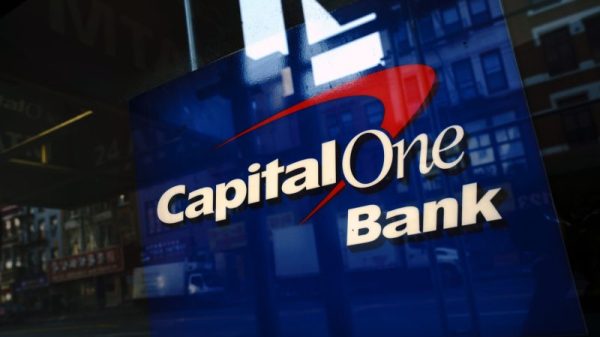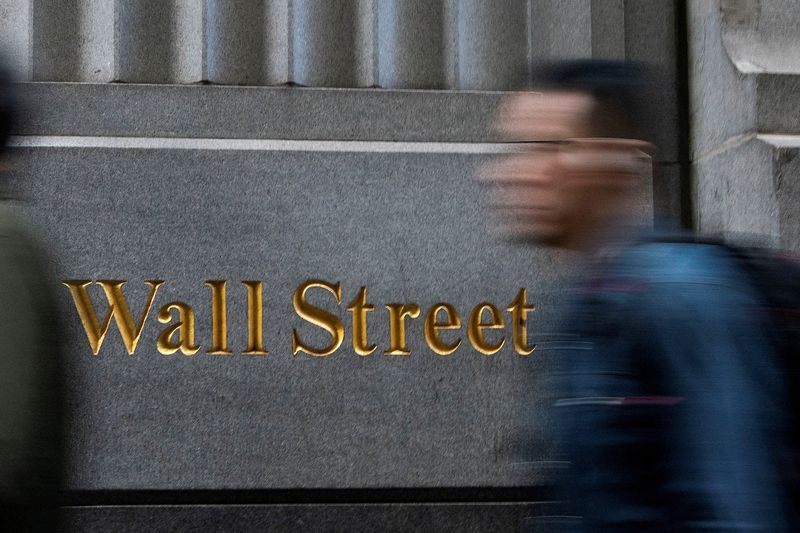By Pete Schroeder
WASHINGTON (Reuters) – Emboldened by a friendlier incoming Trump administration and their success last year in weakening draft capital hikes, big U.S. banks plan to push to overhaul other U.S. capital rules, according to industry executives.
Among the industry’s goals are to lock in a much weaker version of the “Basel Endgame” capital rule, reduce a capital surcharge levied on global banks, re-work a key leverage constraint, and overhaul the Federal Reserve’s annual “stress tests” which assess whether a bank could withstand an economic shock, said three executives with knowledge of the ambitious lobbying plan.
Under President-elect Donald Trump’s first term, global U.S. banks scored some de-regulatory wins, including loosening trading rules and simplifying the stress tests, but they did not win a hoped-for comprehensive review of big bank capital rules implemented following the 2007-2009 global financial crisis.
Those rules aim to prevent another crisis by requiring the biggest U.S. banks such as JPMorgan Chase (NYSE:JPM), Bank of America and Goldman Sachs to sock away nearly $1 trillion combined to absorb potential losses on loans and trading. Banks say the requirements are excessive and poorly calibrated, and some of that cash could better serve the economy by being lent out.
The industry tasted partial victory last year after intense lobbying succeeded in halving the additional capital banks would have to hold under the Basel proposal, and prompted the Fed to review its stress test process.
Buoyed by those wins, and with Trump due to appoint new industry-friendly officials – including a new Federal Reserve regulatory chief nearly 18 months earlier than expected – banks see a unique opportunity to reshape capital rules, the people said. All three requested anonymity to discuss ongoing regulatory matters.
Speaking during earnings on Wednesday, David Solomon, CEO of Goldman Sachs – which lobbied hard to water down Basel – said he expected the change in administration would lead to a new approach to capital rules.
“It feels like we’re in an environment where there could be a constructive discussion about improving the transparency, clarity and consistency around this,” he said.
After years of criticism for the financial crisis, large banks feel they are done apologizing, executives say. They point to how big banks weathered the COVID-19 pandemic and their role in stabilizing regional banks during turmoil in 2023 as proof they are rock solid and do not have to tolerate more onerous rules.
“All we want is a coherent, rational, holistically assessed regulatory framework that allows a bank to do their job supporting the economy that isn’t reflexively anti-bank,” JPMorgan’s CFO Jeremy Barnum said during earnings on Wednesday.
“The hope is that we get some of that.”
Adding to the industry’s confidence is a judiciary more skeptical of overzealous regulators – in particular a June Supreme Court ruling overturning a 1984 precedent that had called for courts to defer to agency interpretations of ambiguous laws. The Fed cited that evolving legal landscape when announcing its stress test review.
“The pendulum swings back and forth in terms of who has more power,” said Ed Mills, Washington policy analyst at Raymond (NS:RYMD) James. “That pendulum has now swung back to the banks. This is a shift that is about 15 years in the making.”
Spokespeople for Bank of America, Goldman Sachs, and JPMorgan did not provide comment.
In an interview with Reuters, acting Comptroller of the Currency Michael Hsu, a top bank regulator, said it was reasonable to question how capital is allocated, but that the overall amount in the system “is about right.”
“On a case-by-case…you turn all the dials down, and then you zoom out and you say ‘uh-oh we’ve ended up with a much weaker system’,” Hsu warned.
“PRAGMATIC” OVERSIGHT
The industry has for months been laying the groundwork with Republican regulators who are poised to replace Biden’s agency heads, and will continue to rally support from Republican lawmakers who narrowly control Congress, the people said.
Banks are currently lobbying to advance a weaker draft of Basel, which overhauls how they gauge risk. The Fed’s regulatory chief Michael Barr said last year a revised draft would hike capital around 9% compared with 19% originally, but lenders hope to push that figure closer to zero, sources said.
Banks broadly agree it is better to lock in a weaker rule under Trump than have regulators shelve the project and risk a future Democratic administration reprising a tougher version, the people said. Speaking at a conference last month, Bank of America CEO Brian Moynihan said regulators should finalize Basel with little impact rather than “leave it open.”
Barr also last year proposed changes to a capital surcharge for U.S. globally systemically important banks, or GSIBs, which would reduce the $230 billion it forces those lenders to set aside. But the banks still want several other tweaks that would further reduce the burden, the people said.
They also want adjustments to the Fed’s “supplementary leverage ratio”, which directs banks to hold capital against investments regardless of their risk, by exempting super-safe assets like Treasuries or certain deposits from its calculation.
That leverage ratio and the GSIB surcharge have been on banks’ hit list for years, as have the Fed’s stress tests. A day after the Fed said it would review those tests, lenders sued the central bank to increase the tests’ transparency, although they have said they hope to resolve the issue outside court.
So far, the signs look positive for lenders. Republican Fed governor Michelle Bowman, a top contender to replace Barr, has criticized his work and called for “pragmatic” oversight.
Travis Hill, who will become acting Federal Deposit Insurance Corporation chair next week and is a top candidate for the role permanently, said last week that the Basel overhaul should be expanded to include other capital issues.
Spokespeople for the Fed and Federal Deposit Insurance Corporation declined to comment.

































